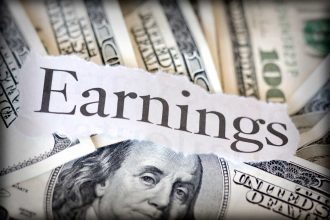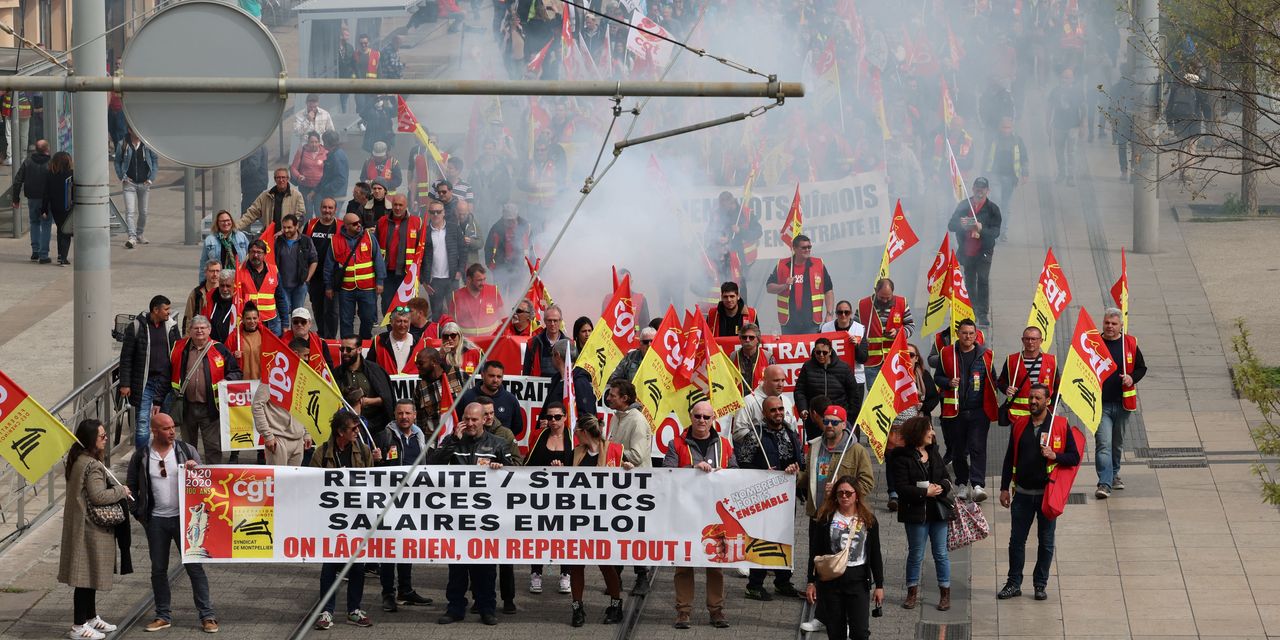The International Monetary Fund — that scourge of the left for demanding that struggling countries adopt austerity policies in return for loans — says that, actually, it’s corporate profits, not labor costs, driving inflation higher in the euro area.
“Rising corporate profits account for almost half the increase in Europe’s inflation over the past two years as companies increased prices by more than spiking costs of imported energy,” said a blog post describing a new research paper written by three staff economists, as the European Central Bank’s annual conference in Sintra, Portugal, kicked off.
The IMF doesn’t use the word “greedflation” in its missive, but the post fits with the idea that it’s companies, not labor, at fault for the rise in prices. In the euro area, the latest data show prices growing 6.1% on a year-over-year basis, still well above target though significantly below the 10.6% peak.
That paper says that profits account for 45% of price rises since the start of 2022, compared with 40% from import costs and 25% from labor. (Per the IMF, taxes had a slightly deflationary impact, to explain why the percentages exceeded 100%.)
Indirectly, the IMF says it wouldn’t even mind if workers got pay rises — if companies reacted by not hiking prices further. “Now that workers are pushing for pay rises to recoup lost purchasing power, companies may have to accept a smaller profit share if inflation is to remain on track to reach the European Central Bank’s 2% target in 2025, as projected in our most recent world economic outlook,” the IMF said.
In her speech kicking off the Sintra event, IMF First Deputy Managing Director Gita Gopinath reinforced that message, albeit through a cursory mention. “All else equal, if inflation is to fall quickly, firms must allow their profit margins — which have shot up during the past two years — to decline and absorb some of the expected rise in labor costs,” she said.
The ECB has lifted rates to a 22-year high, at 3.5%, and is promising further action.
At her last press conference, ECB President Christine Lagarde detailed her understanding of why inflation rose. “To oversimplify: Energy played a significant role, then food kicked in, and energy is now fading, has moved now in May and is in slightly negative territory. But labor, and wages in particular, is playing a significant role as a driver of inflation,” she said.
She elaborated when talking to another reporter. “The only thing that I’m trying to say here is that we have to avoid what I have called the tit-for-tat where, in response to inflation, both corporates and labor want to receive full compensation — which obviously would possibly lead to that second-round effect that I was alluding to,” she said.
Lagarde, in front of the European Parliament, was a bit more willing to entertain the idea of greedflation. She spoke of “those sectors have taken advantage to push cost through entirely, without squeezing on margins, and — for some of them — to push prices higher than just the cost push that would have resulted from the imported inflation.”
As to which sectors, she said “it’s agriculture, it’s construction, some services activities, and I think that it’s important that competition authorities could actually look at those behaviors.”
Frances Coppola, a financial commentator on banking and economics, poured cold water on the idea that corporate profits are to blame. “Rising prices should mean falling aggregate demand. Unless, that is, people have enough money to absorb the increased cost,” she said in a blog post responding to the IMF paper.
“And this is what is really going on. Companies are fattening their profit margins because, in general, people are able and willing to pay higher prices.”
Read the full article here




